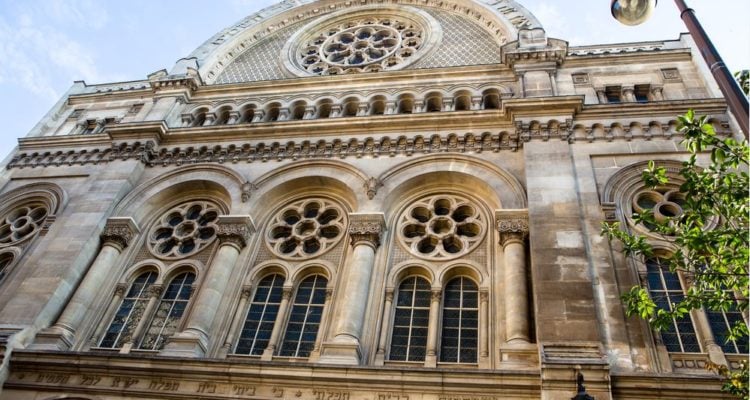Two leading officials from Saudi Arabia visited the Grand Synagogue of Paris, in an environment in which relations continue to warm between the Jewish state and its neighbor in the Gulf.
By: World Israel News Staff
Secretary General of the Muslim World League Dr. Muhammad Abdul-Kareem al-Issa, who previously served as a Saudi justice minister, and Khalid bin Mohammed Al Angari, Riyadh’s current ambassador to France and a former Saudi education minister, were received in the French Jewish community’s largest house of worship, reported the Jerusalem Post.
Among the religious leadersto greet and escort the Saudis at the Great Synagogue of Paris were the Chief Rabbi of France, Chaim Korsia, and the Rabbi of the Grand Synagogue, Moshe Sebbag.
As part of the visit, Rabbis Sebbag and Korsia permitted the Saudi dignitaries to view a Torah scroll and discussed the meaning behind various adornments in the sanctuary’s interior. The Saudis remarked that it was their first visit ever to a synagogue, reported the Post.
The interfaith visit in Paris arrives as Israel and Saudi Arabia appear to be preparing to strengthen diplomatic relations. Notwithstanding Saudi Arabia’s historical animosity toward Israel, and the notorious anti-Semitism of the kingdom’s founder Ibn Saud, both Middle Eastern nations face an ascendant Iran, bolstered by the nuclear agreement it signed with Western powers in 2015 that left the Islamic Republic flush with cash and free to continue developing its “non-military” nuclear program.
Among the signs pointing toward a shifting landscape in Middle Eastern alliances are developments such as a 2017 visit to Israel by former Saudi general Anwar Eshki, who arrived in Jerusalem in July and met with Israeli officials, including Foreign Ministry Director General Dore Gold.
While Iran has yet to be caught violating the terms of the agreement explicitly, its military facilities continue to operate without oversight or inspection by outsiders, and its policy of funding and arming Islamic terrorist groups in the region such as Hamas in Israel and Hezbollah in Lebanon continue unabated.





